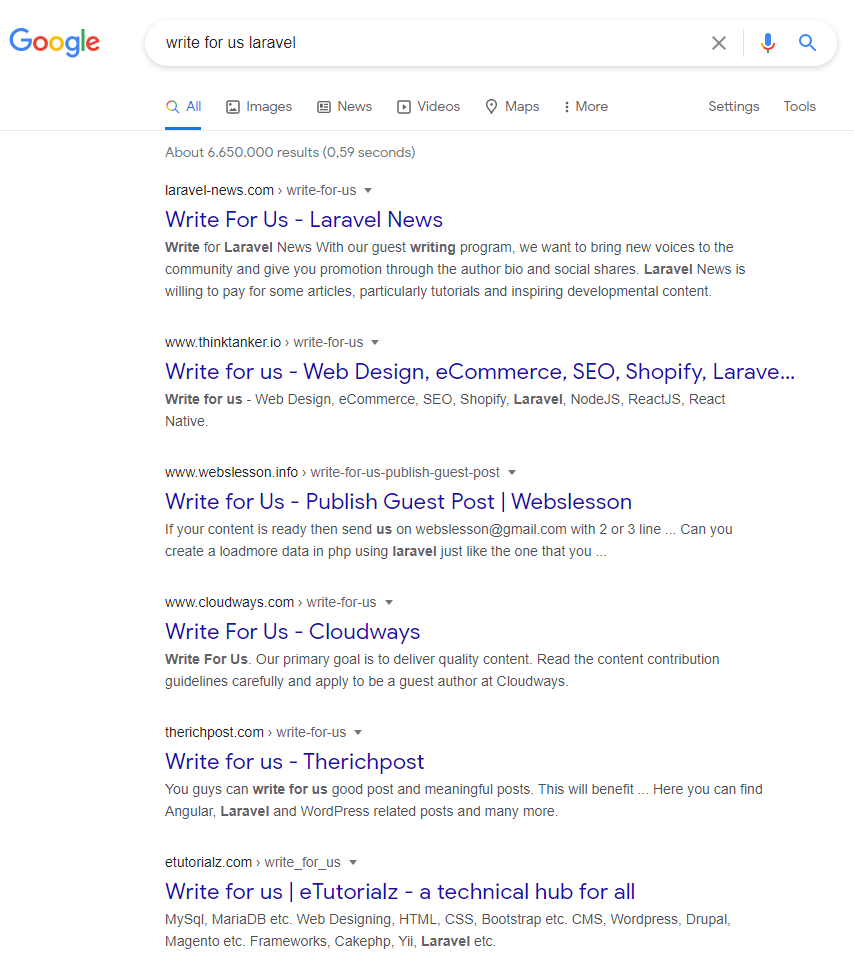Since I started the blog, I’ve received many emails from readers asking various questions about technical content writing and freelancing in this field. So I thought it would be nice to collect the most popular questions and share my answers in a blog post. In this way, I hoped to help others who are interested in the subject but are reluctant to contact me directly.
Long story short: Below are 7 FAQs about technical content writing and my (hopefully helpful) answers. Let’s get into it!
Table of contents – FAQs on technical content writing
- Who are our fellow coding writers?
- What skills do I need to start as a freelance technical content writer?
- How do I find clients?
- I don’t get any clients because I have no experience – what can I do?
- Where can I learn about technical content writing?
- How do I write my first blog post?
- Should I learn about marketing?
- How much can I charge for a blog post?
Who are our fellow coding writers?
One more thing before we switch to question-and-answer mode: Let me briefly talk about the people who’ve sent me these questions. I find it pretty fascinating to see who’s interested in the subject and thought you might as well appreciate the insight.
Coding writers are:
- Developers and other tech experts from various industries
- who want to share knowledge with their peers and make a name for themselves in the community
- who are looking for opportunities to earn some money by writing
- asked to write blog posts and tutorials for their company
- Marketers and journalists who are passionate about technology and want to write about technical topics
- People from diverse backgrounds around the world looking to make a living as freelance technical content writers
Let me just say that I’m humbled and glad to have reached so many different people! Thank you!
But let’s get back to the main topic and look at your FAQs on technical content writing.
Question 1: What skills do I need to start as a freelance technical content writer?
First, let’s look at the fundamental skills you need to acquire and hone in order to become and remain a great technical content writer:
- Writing skills: includes language and grammar and the ability to express yourself understandably and coherently in writing.
- Technical expertise: you need to know about the topics you want to write about. At the very least, you should have a basic understanding to build on.
- Marketing knowledge: you need to know a thing or two about marketing as you are primarily hired as part of corporate marketing strategies.
- Business skills: as a freelancer, you need to understand your business responsibilities (e.g., bookkeeping) and how to make money (e.g., find clients).
Look at the list again. What are you good at? In which areas do you lack knowledge/skills? What can you do to improve?
Clearly, we will never know everything. So embrace what you’ve already achieved. Actively work on your abilities, and you’ll get better over time!
Tip: Don’t shy away from investing in online and offline courses on the above topics if it’ll help you learn and build confidence – investing in knowledge is one of the best investments in yourself and your business!
Question 2: How do I find clients?
Here’s a list of ideas on how to get (your first) clients:
- let the people in your private and business networks know about your business (acquaintances, former clients, colleagues, etc.)
- be active on your favorite social media platform and build a community
- use LinkedIn or other business network platforms to connect with your target audience
- have a search engine optimized website
- regularly publish content on your website’s blog or a blogging platform
- chat with people at events and exchange contact data
- get recommended by happy clients (much more likely when you did some work already)
- register with freelance project platforms
- send cold-emails or cold-call businesses
Note: If you want to contact prospects directly, make sure you don’t exceed the legal limits. Find out about the situation in your country to avoid problems. In Austria, for example, it is not permitted to call or email people (especially private individuals) without prior consent.
As you may have noticed, there are two main paths to attracting clients:
- let them come to you
- you go to them
Depending on your personality, you may prefer one option over the other (hello, my fellow introverts!). However, these methods aren’t mutually exclusive. Try leveraging multiple ones and see what works best for you!
For example, I’d say that a professional website is an absolute must for any business. Yet, it will be some time before you receive your first customer inquiry from there. In the meantime, consider adopting a more active strategy, like attending events, talking to people, and building your business network.
Tip: Buy a domain and use it to create an email account. If possible, don’t email prospects with an @gmail address, as this is often perceived as unprofessional.
Question 3: I don’t get any clients because I have no writing portfolio – what can I do?
Have you already received inquiries, but are always rejected because you have no customer work to show? Understandable. Companies want to be sure that their investment in your services will pay off. If you can’t prove that your work is of A+ quality, it’s harder to get prospects to buy from you.
Still – everyone started from zero at some point. Even your prospects and clients.
So what can you do?
Show them your other work! Instead of sitting on your hands while waiting for jobs, get relevant experience wherever you can.
I have two tips for you:
- Write and post content on your website’s blog regularly. Of course, you can also publish blog posts and tutorials on Medium, dev.to, and the likes.
- Pitch your blog post and tutorial ideas to big blogs and online magazines in your field. Find the right websites by searching for “write for us” + your niche. In my screenshot below, you can see the search results for “write for us Laravel.”

Make sure you pick topics that you would write about for actual clients. Over time, you should have enough content pieces to send out to potential clients so that they can get an idea of your work.
Tip: Make sure your blog post/tutorial is published with your name under it (credibility!).
Question 4: Where can I learn about technical content writing?
This question is for sure the most popular of my collected technical content writing FAQs. I’m often asked if I know of a useful resource or an online course that teaches technical content writing. And to be honest, your Google search is as good as mine…
Note: If you know a website or a class on the subject, please share it with your fellow coding writers by leaving the link in the comments below!
But …
As explained on my blog before, technical content writing is essentially content writing on technical topics. Consequently, you can’t go wrong by looking into content writing in marketing.
Learn the basics such as: What is it? What’s the big idea behind it? How do you write engaging blog post titles? Or how do you even start writing a blog post? And so on. (We’ll talk more about marketing in question #6.)
Next comes the technical part.
Depending on how technical you want your content to be, you should also look into technical writing. A tutorial on building a React Native app is more technical than writing a blog post about the framework’s benefits, right? Although the topics are similar, the tutorial contains code and must be written differently from the blog post. Yet, you don’t need to become a full-fledged technical writer – who’s btw a highly trained expert in their field – to create intelligible tech content. I recommend taking Google’s free technical writing course to get a solid foundation and then see how it goes.
Finally, if you want to write technical content, you need to actively read blog posts and tutorials on your favorite topics. Spend time analyzing the content pieces that impress you and find out what makes them so great.
However, theorizing isn’t going to be enough to improve your skills, and you need to take action. So, write, write, write!
Question 5: How do I write my first blog post?
If you’ve never blogged before, it’s only natural to wonder how you’re going to approach the task in the first place. However, with practice and time, the routine comes, and you will find your preferred processes.
Until then, feel free to use my workflow:
- Define the subject of your blog post – which question(s) should it answer?
- Conduct thorough research, then copy and paste the information into a dedicated document for easy reference when you write. Don’t know how to research? Check out my blog post about it here.
- Set up a content outline and define what you want to talk about in each section. Now you can estimate the length of your blog post (calculate up to 300 words per part).
- Write your first draft! Just focus on getting everything out of your head and onto your document. Don’t worry about grammar and the like yet.
- Edit your draft to make it understandable and cohesive. Rewrite sentences and passages until everything makes sense and follows a common thread.
- Edit a second time, paying particular attention to grammar and spelling.
- Add images, external and internal links, create meta descriptions, etc.
Now all you have to do is transfer your blog post to your website, review it one last time, and finally publish it. Yay!
Question 6: Should I learn about marketing?
Others may disagree with me on this, but I think yes, you should definitely get some marketing knowledge. Because then you can empathize with your clients (who are often marketers) and support them more effectively in achieving their goals. On the other hand, you can also positively impact the way you market your business. A win-win situation!
Yet, marketing is a broad field, and you can hardly know everything (even marketing professionals don’t). But luckily, most of the things you need to know aren’t that hard to grasp, and you can often learn as you go. Even so, I would advise you to read a few blog posts or watch videos about content marketing and build a basic understanding of the matter.
Let’s briefly talk about why content marketing is essential for you.
You are a technical content writer. And content writing is part of content marketing. So it’s also your job to know what you’re doing and why you’re doing it, right?
Make an effort to determine why companies leverage content marketing to achieve their goals, what methods they use, and why. Also, see how you fit into the big picture and recognize how your work helps companies achieve their marketing and, ultimately, business goals (know the value of your work!).
Even if you dislike marketing, don’t ignore its impact on your work and your clients. Learn how to leverage it for your business and improve your skills to become a better partner for your clients.
Question 7: How much can I charge for a blog post?
Finally, let’s talk about money. Naturally, you want to make sure that you are offering your writing services at a reasonable price that you and your customers can agree to.
However, if you look at the prices listed on online content mills and some project platforms, you can get a grim outlook on the money situation. Word prices are often well below 10 cents and technical tutorials with 2000 words for €400 or less do not paint a rosy picture.
If your service is cheap, you probably get more work quickly. However, if you write 4 cheap blog posts, you might get the same amount of money as writing a normal-priced blog post. It’s a simple numbers game – time vs. money. Because the more time you spend writing blog posts, the less time you can spend building your business, finding clients, and working on your own projects (I also don’t think this work style is very healthy for the body and mind).
The truth is that some people can somehow make a living from that money, but that doesn’t mean you have to.
Will some prospects say “no” to you because they think you’re too expensive? Yes. Will some clients try to talk you into charging less because content mill writers work for 0.5 Cents a word? Also yes. Will this make you nervous and anxious about your financial future? Probably.
But would charging less and working with these people make you happy? I can’t imagine.
If companies don’t want (!= not able) to pay for your (reasonably priced) writing services, then publishing quality content isn’t their priority. Consequently, they probably don’t see the value in your work.
Forget them – these clients can be real troublemakers.
You have to make a living, right?
We all need money to survive, and we shouldn’t be ashamed of wanting to be paid for our work. Technical content writing should be your profession, not your hobby. Hence, you need to make a living from it.
So as a beginner, how much can you charge per blog post?
I’d say you should charge at least €300 for a blog post (~1000 words, no code). But, keep in mind that the more technical a blog post is and the more expertise it requires, the more you should charge.
Of course, pricing also depends on the economic situation in your (clients’) country. So €300 is a super fair price in Germany, but maybe too expensive for Sri Lankan companies. You get the drift.
Note: Take a look at the results of the “Freelance Writer Survey: Experience, Pay and Gender” from 2018 (sorry, I couldn’t find anything more recent…) – but keep in mind that the participants were from different industries, not necessarily technical content writers.
What?! Are these all the FAQs on technical content writing?
No, there are some other great questions worth answering, but I have to stop writing at some point, right?
Anyway, I hope you found answers to your own questions among the 7 FAQs on technical content writing in this blog post. If not, please feel free to contact me or leave a comment below with your question!
This blog post’s featured image is by Camylla Battani (Unsplash).





No responses yet